Chat with us
9 a.m. - 7:00 p.m. EST
Enter camper details to start the camp registration process and to view available camp dates and pricing
By clicking Submit you agree to and have read our privacy policy: Privacy Policy
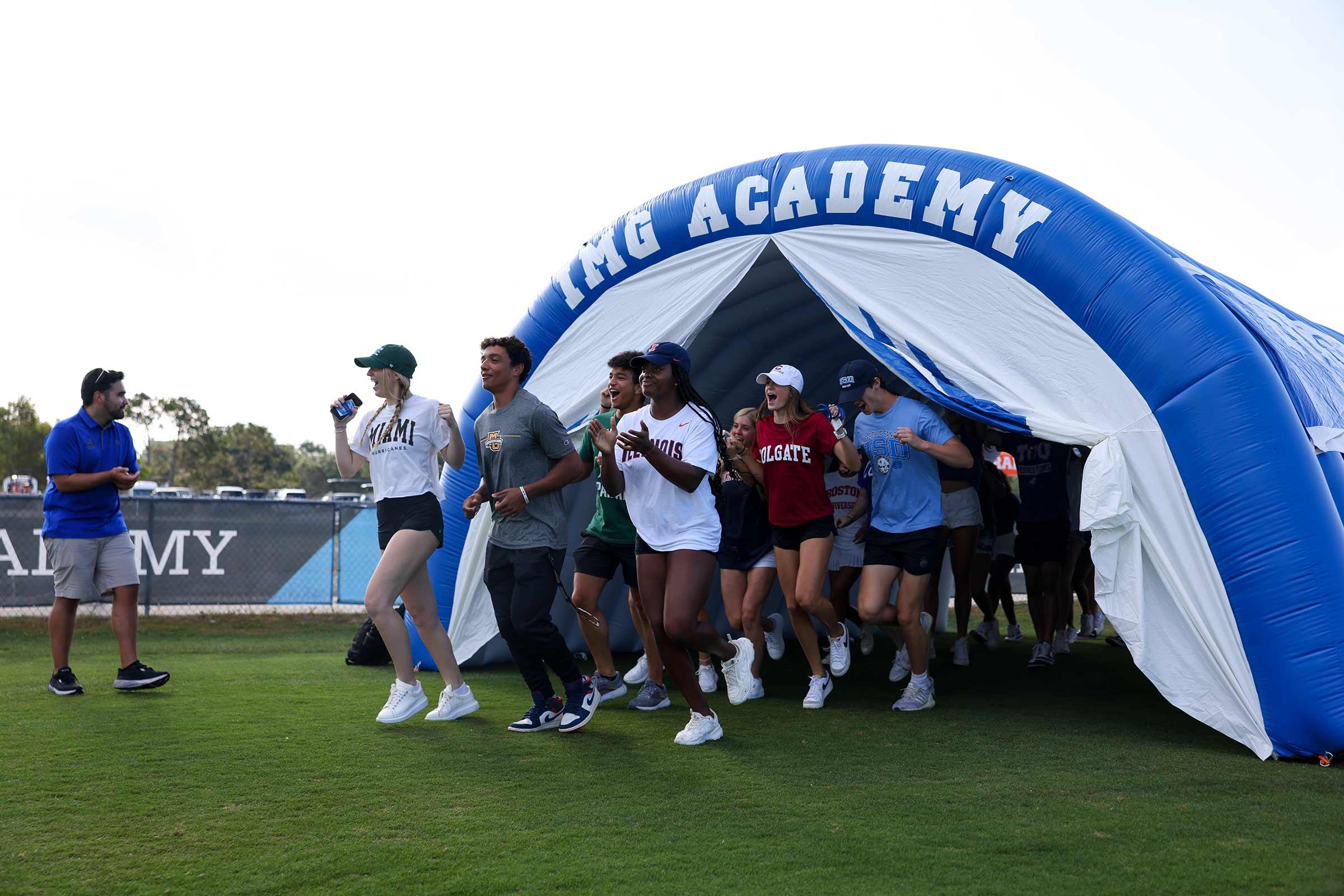
Wondering how to contact college coaches? The best way is to proactively reach out using methods like email, text, phone calls or social media. We’ll cover when and how to do it effectively below.
Email is the best way to introduce yourself to college coaches. You can include all of your important information in one message, making it easier for coaches to evaluate your potential as a recruit.
Read how to write an introductory email that will get a college coach’s attention.
After you send an email, consider making a follow-up call to discuss your achievements and college goals in more detail. It’s a good idea to wait about one to three days before making the call to give the coach time to review your information.
Read how to call college coaches—as well as how to leave your best voicemail.
When a college coach reaches out to you, it’s important to reply promptly and professionally. While recruiting mainly happens online, coaches may also send various types of recruitment letters to athletes.
Learn about the different types of recruiting letters you may receive—and how to respond.
Coaches value recruits they can connect with on a personal level. Keep them updated on your progress – both athletically and academically. Share your wins, grades and any improvements made to your game.
Learn more about texting college coaches or direct messaging coaches through your social media platforms.
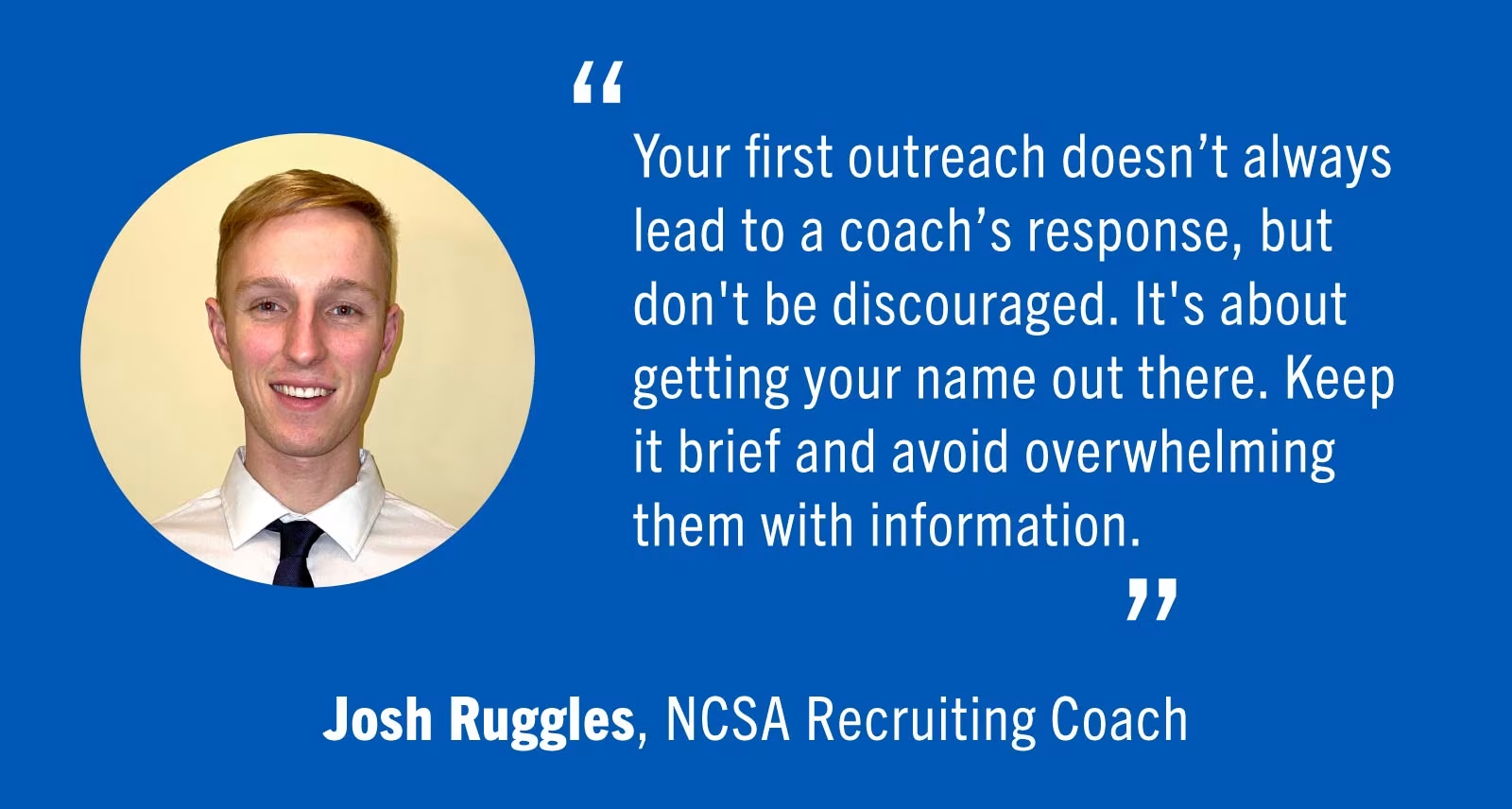
For most sports in the NCAA, coaches can start contacting recruits starting either June 15 after their sophomore year of high school or September 1 of their junior year. Check the NCAA recruiting rules to find out the exact date for your sport.
The NCAA calendars can help you know when your sport is actively recruiting. Even if coaches can’t directly contact you, they can still check your emails, follow your social media and track your progress on your NCSA profile. It’s all part of the long game!
While college coaches have specific rules about when (and how) they can reach out to student-athletes, you have some flexibility in starting the conversation. The timing for reaching out to college coaches depends on your own recruiting journey and goals.
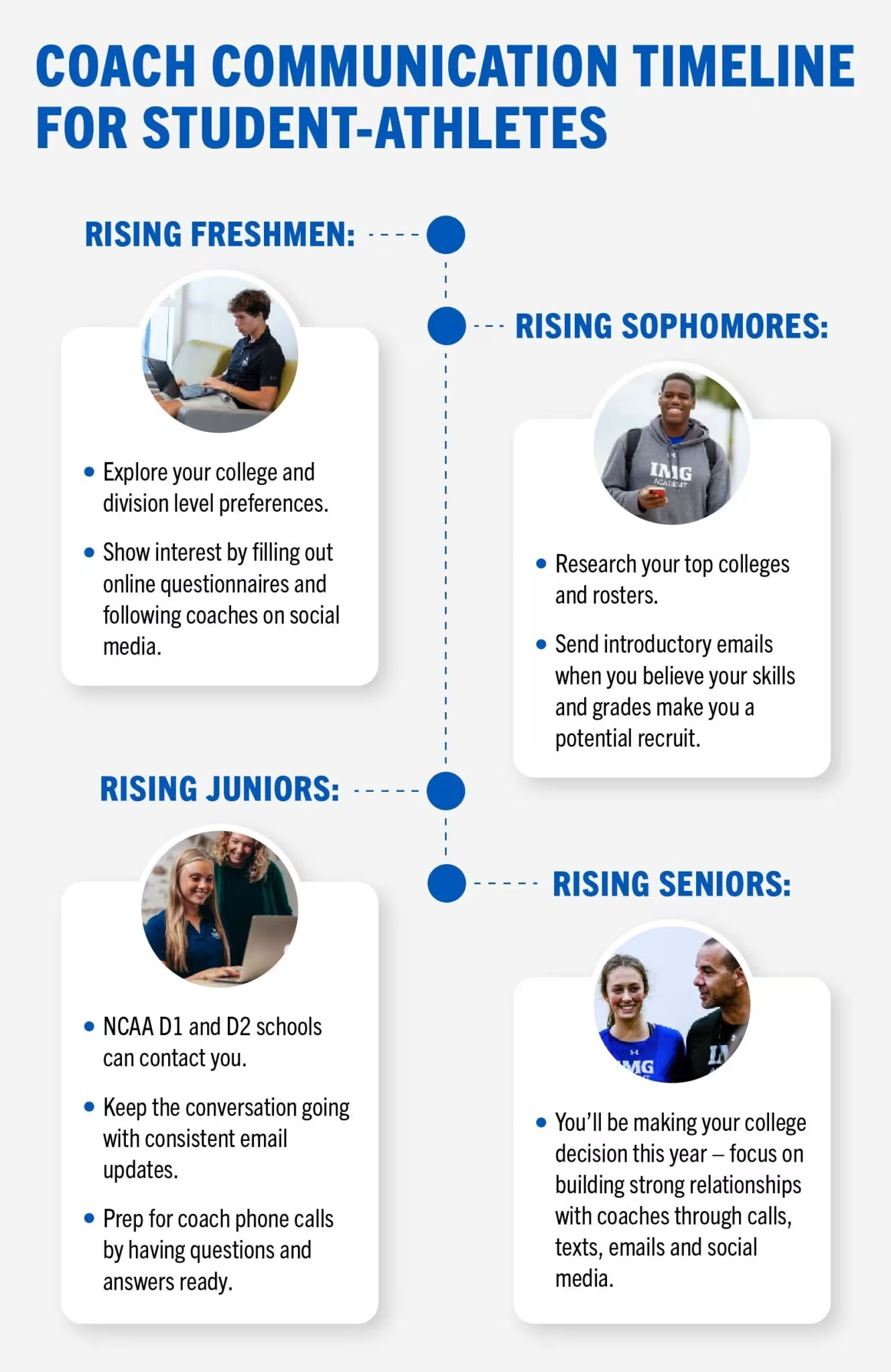
Here’s a general timeline to help you know when to start contacting college coaches:
Need some help with your answers? We’ve got your back. Here are 8 questions asked by college coaches and how to answer them effectively.
Insider Tip: Sometimes, college coaches start recruiting as early as 8th grade – especially at the D1 level. If colleges are already interested in you at this stage, you’ll want to send your introductory emails right away. Your high school or club coach can assist you in these early conversations by calling college coaches on your behalf until the NCAA allows direct contact.
Nearly all college coaches have their email or phone number listed on their school’s website. To find it, click on the coach’s bio under the roster tab. If it’s not there, look in the staff directory for the athletic department.
Looking up college coach info on your own isn’t hard, but it can be time-consuming. Why not simplify it? NCSA provides contact details for college coaches nationwide, making communication prep easier. Want to learn how? Watch the video below!
Coaches receive a ton of emails from interested recruits, so if you want to get recruited, you’ll need to stand out. Here’s what you should say in your message:
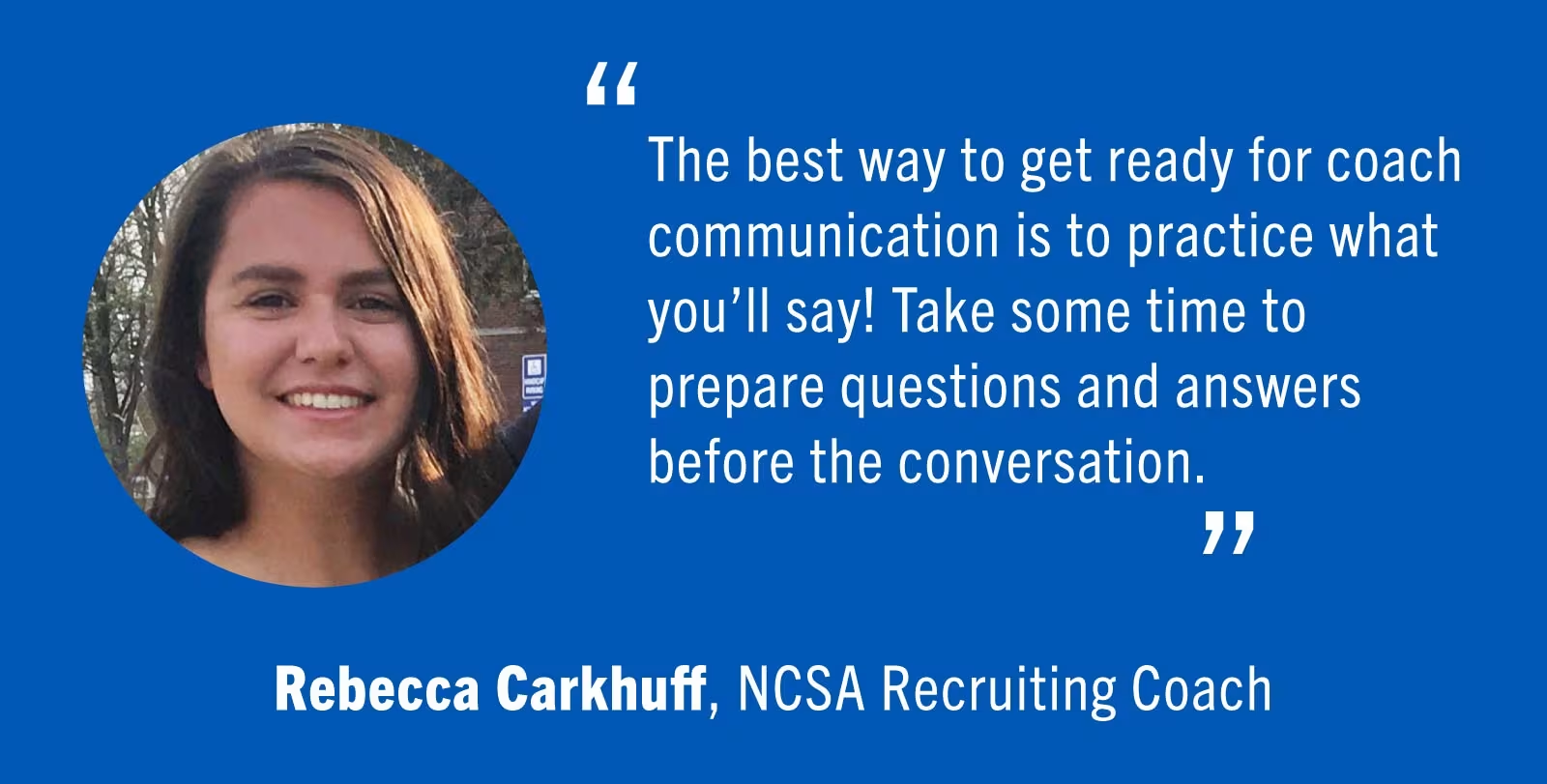
Before you head to a college camp or a recruiting event, it’s a great idea to reach out to the coach. Not only does this express your interest in being recruited by them, but it also helps coaches plan their recruiting schedule more effectively. This ensures you’re on their radar for evaluation.
Afterwards, follow up with the coach by email, phone or text. If they were there, send a thank-you message, and ask for their thoughts on how you did. If they couldn’t make it, just give them a quick update on your performance or share your experience at the event. This not only keeps them in the loop but also helps build a solid relationship between you and the coach.
There are many ways to let a college coach know you’re interested in their program. The most obvious answer is to send an introductory email, telling them that you want to be recruited and why you would like to join their program. That’s a good start, but what matters most to coaches is how often you communicate your interest.
Here are some ways to show a coach you are interested:
Insider Tip: Did you know that by working on your mental performance, you can improve your coach communication? Get personalized coaching with IMG Academy+ to help boost your confidence and develop the skills you need to excel in sports and communicate effectively with college coaches. Learn how you can take advantage of IMG Academy+ Coaching, now included with an NCSA MVP Membership.
Never ghost a college coach! Telling a coach that you’re not interested in their program can be uncomfortable, but it’s important you do. Whether you’ve decided to go to another school, your interest has faded, or the program wasn’t your cup of tea from the start, it’s always good practice to communicate your decision. Why? Coaches have extensive networks, and how you handle this situation can reflect positively or negatively on your character.
Here’s how to tell a coach you are not interested, politely:
If you’ve already established a relationship with the coach, it’s best to give them a call. For initial coach contacts, sending an email is perfectly fine. Coaches will value your honesty and this approach shows maturity. Plus, it keeps the door open in case your circumstances change.
Student-athletes are the ones who should lead the way when talking to college coaches, but parents can help get them ready for these critical conversations.
Here’s how parents can make sure their child is all set for coach communication:
Explore the main differences between college division levels.
Create a target list of schools on your NCSA profile. Don’t have one? Create yours today!
Find out how social media can give you an inside look into sports programs.
See some questions you should be asking college coaches.
Here’s what to expect during a coach phone call.
When it comes to contacting college coaches, the timing and how you do it really matter. Whether you’re sending emails, making phone calls, writing letters, texting or using social media, knowing when and how to reach out is a crucial part of your recruiting journey. It’s all about making a strong first impression and effectively showing your interest and skills!
At NCSA, we have a team of former student-athletes who’ve been through this process themselves. We understand the nerves that come with that initial outreach, and we’re here to help you get ready. Take the next step. Create a free profile today!
Yes, high school athletes can contact college coaches at any time. The NCAA rules only limit when college coaches can reach out to recruits. Unless you’re one of the top athletes in the country, you’ll need to proactively reach out to coaches to get recruited. Even if they can’t reply immediately, they can still read your messages and follow your recruiting progress.
For D1 programs, start by contacting the recruiting coordinator, as they typically handle all recruiting matters. If there’s no recruiting coordinator, consider reaching out to a coach who specializes in your position or the associate head coach before contacting the head coach.
For all other divisions, it’s generally best to reach out directly to the head coach, unless the program specifies a different point of contact like a recruiting coordinator.
After sending an introductory email to a college coach, recruits can expect a response within one to two weeks. If you receive a response within this timeframe, a coach is most likely interested in recruiting you. Coaches have busy schedules and depending on the time of year it may take longer to read your email.
If you haven’t received a response from a coach after a follow-up email, check with your high school or club coach to see if they have any information. They can try to contact the coach on your behalf. Coaches can get swamped with emails, but sometimes, no response might signal a lack of interest. Be patient, explore other options and concentrate on schools that are actively showing interest in you.
Recruits should typically stop contacting a coach or program if they fail to meet the program’s academic or athletic requirements, if the coach makes it clear they’re no longer being considered or if the coach has already completed the roster for the recruit’s graduation class.
Original author: NCSA Sports, "How to Contact College Coaches," January 30, 2018, https://www.ncsasports.org/recruiting/contacting-college-coaches
To read more from NCSA, please visit www.ncsasports.org/blog
Discover the opportunities available at IMG Academy to help your student-athlete reach their full potential
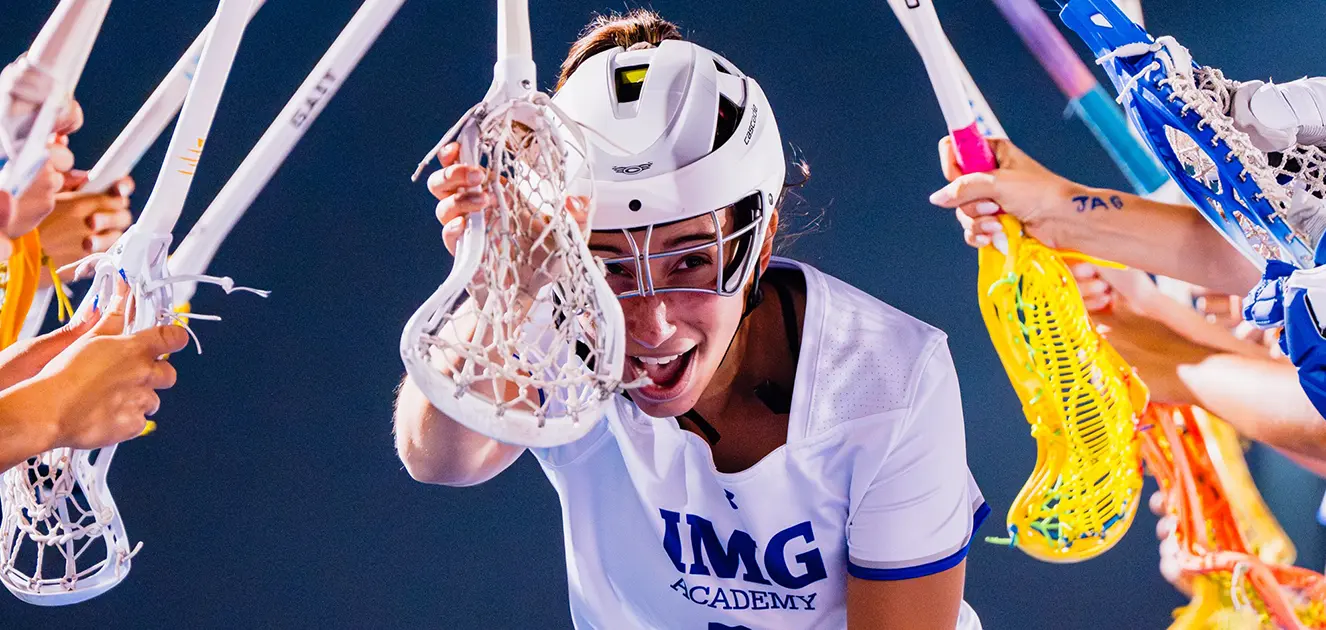

Discover the opportunities available at IMG Academy to help your student-athlete reach their full potential
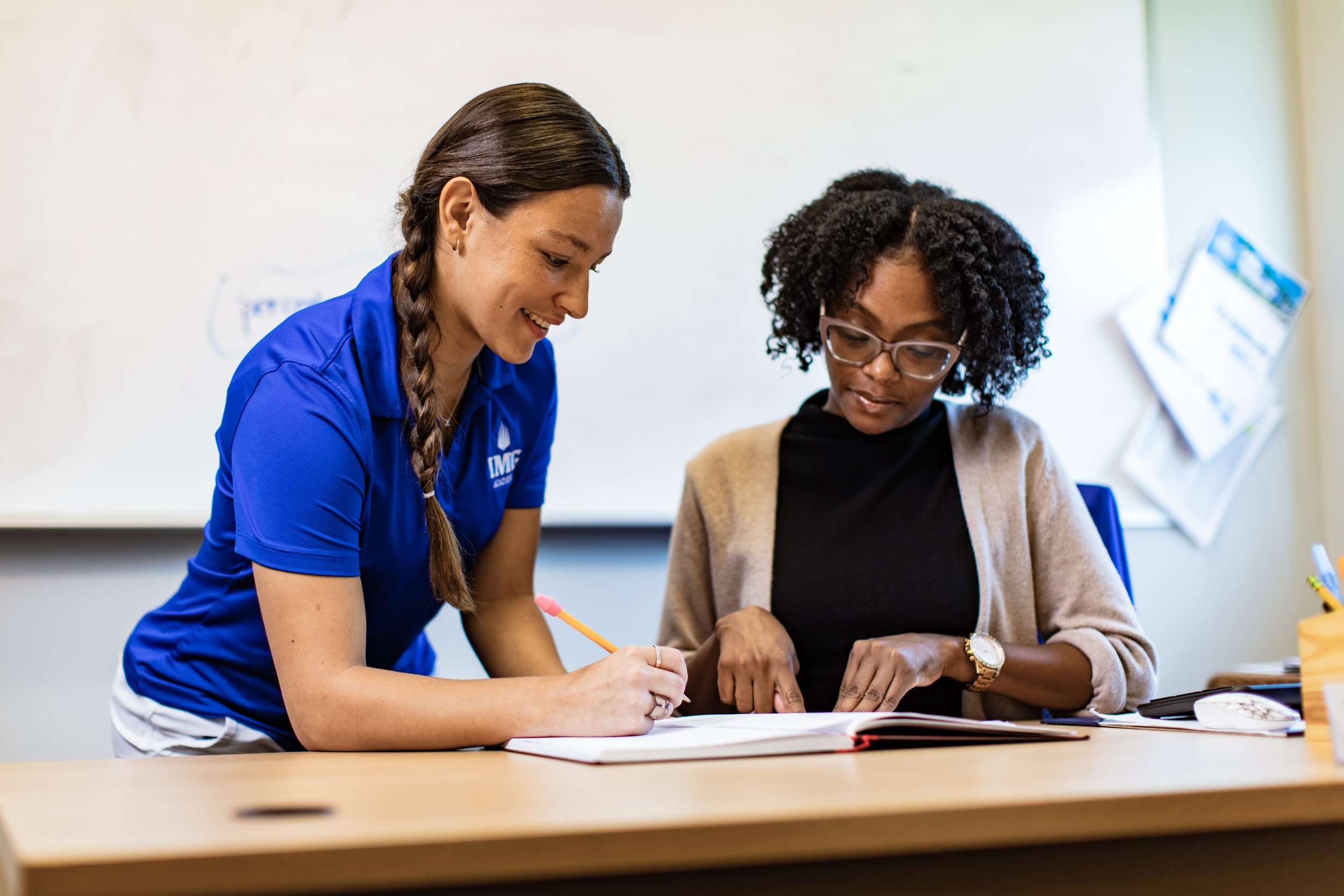
Explore IMG Academy world-renowned academic and athletic programs.
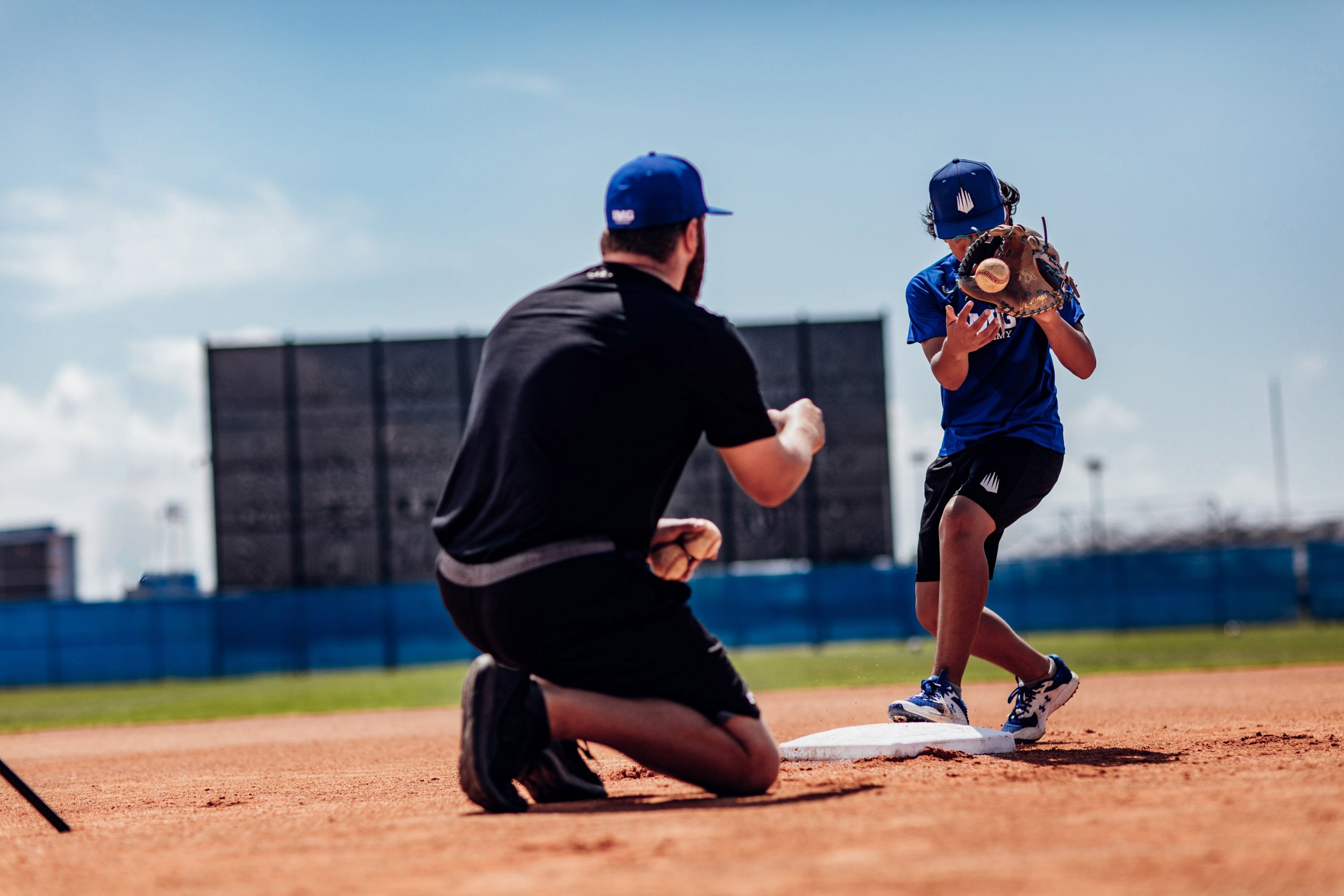
Explore IMG Academy's year-round sport camps and training programs.

Learn about online Mental Performance and Nutrition coaching.
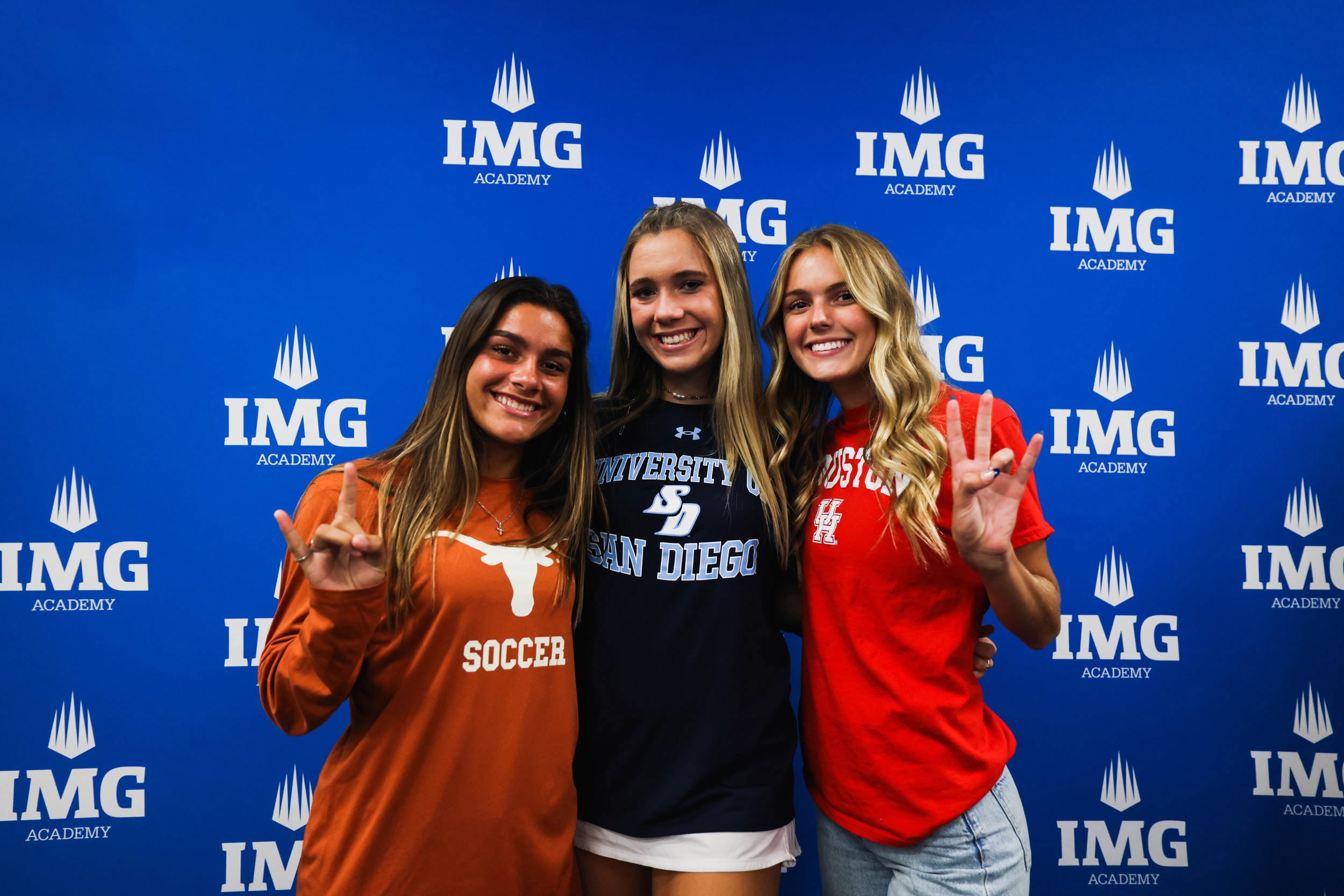
Learn about NCSA College Recruiting and how to prepare for the next level.
9 a.m. - 7:00 p.m. EST